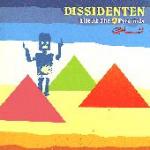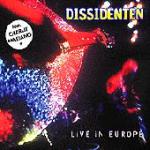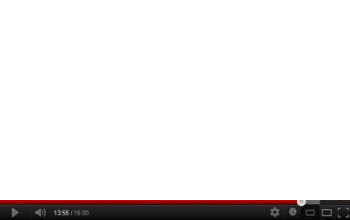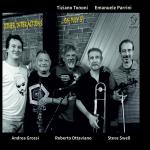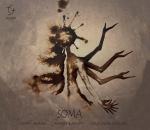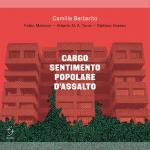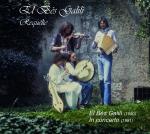
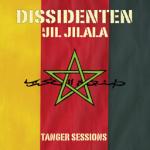
Sahara Elektrik and further...
1983 was an unremarkable year in pop-cultural history. The New Wave,
having overthrown the old regime, were in turn being overthrown by the big
hair and shoulder pads of the New Romantics; hip-hop was becoming the Holy rail and the German popular movement the “Neue Deutsche Welle” had just aded out. But in the desert wastes of North Africa, something stirred. In the same year hat European inspiration seemed to be entering a terminal phase, fresh sound rom the Sahara plugged into the Western music world. Surfing the wave of the orth African zeitgeist were Marlon Klein, Friedo Josch and Uve Müllrich, hree globetrotting musicians who had just moved from Bangalore to Tanger.
The DISSIDENTEN, for it was they, built a studio, carefully switched on the
microphones and stood back.
Emerging from their long expedition through the world of South Indian music, documented in their debut album Germanistan, the trio headed to the Moroccan metropolis to start their ground-breaking collaboration with Tanger based cult musicians Lem Chaheb. It was duly released as Sahara Elektrik, a local joint venture designed to deliver global fame.
In 1984, English journalist Andy Hurt referred to the album by noting that
“It’s ironic, but by no means surprising, that Britain is the last European
nation to open it‘s doors and collective minds to Germany’s Dissidenten.
The assumption that we Brits lead the field in musical trends makes it hard
for us to accept that someone else has beaten us”.
The renowned Spanish journalist José Manuel López wrote of the release in
2007, „This album is the Bible and Koran of world music, and changed the
course of contemporary pop. For the first time, a hybrid of music from two
cultures was created without one or other dominating. The meeting of the
most innovative elements of rock music and the cosmopolitan Maghreb was a radical and progressive step”.
Sahara Elektrik became an anti-Eurocentric anthem, and the song
‘Fata Morgana’ was adopted by right-thinking people the world over, from Rio to Barcelona, from the stages of New York via Glastonbury to Roskylde.
The impact of the album is still felt – the German magazine Musikexpress
places the album at #38 in its ‘Best German Albums’ list. For perhaps the first time, two cultures clashed without one dominating. Here there were no losers, only winners.
‘One World’?
And now it’s 2008, over a quarter of a century since those electrifying days.
Musicians are today routinely inspired by ideas from other cultures and in
turn make their own contribution to those cultures. And the DISSIDENTEN
are in the forefront of this cross-fertilization. Their subsequent albums
document the development of multiculturalism; the fusion of cultures, the
mash-ups delivered by today’s technology build upon the ambitions of earlier times.
The ‘clash of cultures’ so beloved of the media seeks inter-cultural dialogue - the sound studio is an ideal place to stage a sonic examination without ideological disturbance from the world of geographic reality.
Twenty-five years after the phenomenal success of Sahara Elektrik, the
DISSIDENTEN once more return to the heart of the Maghreb. This time, the
contemporary world of global warfare is captured by electric guitars, crashing drums, pumping basses, hypnotic hurdy-gurdys and psychedelic flutes, and our protagonists Klein, Josch and Müllrich are catapulted into a tangible world of reality, far removed from the former multicultural ideal.
Once again the location is the Medina of Tanger, and the vocal fellow-travellers are again heroes of the North African rock scene.
Jil Jilala
Along with the Moroccan bands Nass el Ghiwane and Lem Chaheb, Jil Jilala
are the cornerstone of popular North African music. The compositions of
Abdelkrim El Kasbaji and Moulay Tahar El Asbihani speak to the entire
population, inspiring both high-flown poetry and urban graffiti. They are a
national cultural treasure with which everyone can sing along.
Founded in the 70s, they became the spokesmen for a generation. Born out of a fertile mixture of nouvelle vague, film noir, existentialism and Woodstock, they deliver a post-colonial, post-modern comment upon their own heritage.
Their roots lie in traditional Malhoun music, and in the traditions of an ancient Sufi brotherhood known as the Jilala, from where they took their name.
When Jil Jilala politicised the music of the Maghreb, they dealt a deathblow to the sickly-sweet love songs of the region. Just as film director Martin Scorsese refers to Nass el Ghiwane as the Rolling Stones of Africa, so the ubiquitous Jil Jilala are the Beatles of the Maghreb.
The lyrics
The words tell stories of friendship between peoples and religions, of a
common humanity to which the events of September 11th 2001 and the war in Iraq are no obstacle.
Quotes - “make wars history”, ”the world is a mirror - show yourself in it -
and it will reflect your image” - reveal the essential message. “God gave you something better than magic – a brain!” is directed at religious fanaticism, whether Christian or Muslim.
A short introduction to the Tanger Sessions
Hard-rocking electric guitars and driving rhythms create a mysterious and
metallic atmosphere evoking the hysterical voices of war correspondents of
CNN and Al Jazeera. The unison choral singing of the Malhoun magnifies the emotions, as they go into a trance that unites the whole assembly.
The opener ‘Akaaboune’s Homage`is a majestic tribute to the legendary
patron of art of the Moroccan music scene. Introduced to the band by writer / composer Paul Bowles, Akaaboune was also co-producer of Sahara Elektrik.
Hooks abound, prominent guitars grab your ears and choirs soothe them in
‘Morock’n’Roll’. After an atmospheric intro, the hard-bitten ‘Gun Factory’
reveals itself as a savage attack upon those who profit from the weapons
industry. ’The World is a Mirror’ refers the established DISSIDENTEN principle, and ‘Truth is the Only Religion’ praises the benefits of a humanistic world.
After an ethereal flute intro, ‘Song 4 A Rainbow’ refers hopefully to the ideal rainbow of nations, races and cultures that some feel is possible to achieve. ‘Fata Morgana’ takes centre stage in the Tanger Sessions as an
electric/acoustic oasis, resplendent under the Saharan sun.
Alongside the DISSIDENTEN and Jil Jilala are an illustrious collection of
musicians from Marrakech and Munich, Casablanca and Berlin:
The guitars
Three guitarists produce the six-string thunder of the Tanger Sessions. First
up is ROMAN BUNKA, a close friend of the DISSIDENTEN since his days with
Germany’s first world-fusion band Embryo. He is also a world-class oud player - Egyptian star Mohammed Mounir regularly uses his services.
Described by producer Robert Wilson as ‘the Philipp Glass of guitar’,
JENS FISCHER’s name is forever linked to the Indo-Germanic band Tri Atma.
He comes from Hannover in northern Germany, as does the third string master HENNING RÜMENAPP. Henning is probably best known for his work with the GUANO APES.
The hurdy-gurdy players
The hurdy-gurdy colours the Tanger Sessions with an element of hypnotic
trance, and provides the musical link between the north and south coast of
the Mediterranean. Two master-performers, both with a long background
in futuristic folklore crank the handles – ELKE ROGGE was the frontwoman
for the Hölderlin Express at the beginning of the 80s, and she is joined by
TILL UHLMANN. Uhlmann, one of the creative forces behind the brother’s
band ulman steers the medieval hurdy-gurdy into modern times.
Vocal support
As well as the raw vocals provided by Jil Jilala, there are other voices from
Casablanca. MENNANA ENNAOUI delivers an Arabesque connection between
folk and jazz, and one which her former musical partner Toots Thielemans
also recognised. And finally, closing the circle, is NOUJOUM OUAZZA, who
played mandolin cello with Lem Chaheb, in a celebration of his 25-year long involvement with the DISSIDENTEN.
The Tanger Sessions contain the seeds of a new reality, one which
makes obvious the ever-developing cross-fertilization between
western and Arabic culture. Rather than vague ‘one world’
philosophies, it is the wild spirit of the hard-rocking Seventies
which connects the musicians involved. The CD cover shows an
amalgamation of the German and Moroccan flags – the central
pentagram represents a ban on evil. Under this new flag, the
DISSIDENTEN once again become activists campaigning for a
‘world’ music free from the burden of globalisation.
The Tanger Sessions reflect in music both the light and dark sides of
the clash of cultures.

1. Akaaboune’s Homage 7’27” (Klein/Josch/Müllrich/Ouazza/Asbihani/Kasbaji) This is the world – not your country
2. Morock’n Roll 5’26” (Klein/Josch/Müllrich/Asbihani/Kasbaji) God gave you something better than magic – brain
3. Gun Factory 6’50” (Klein/Josch/Müllrich/Asbihani/Kasbaji) Heart you missed it - time is a wolf – that’s why there are wars
4. Fata Morgana “Tangier Version” 9’31” (Klein/Josch/Müllrich/Lamrani) The eagle sits in the cage – while the chicken are watching TV
5. Song 4 A Rainbow 7’19” (Klein/Josch/Müllrich/Lamrani) Make wars history
6. Truth Is The Only Religion 8’15” (Klein/Josch/Müllrich/Asbihani/Kasbaji) Nothing ever changes – except gods and fashions
7. The World Is A Mirror 7’25“ (Klein/Josch/Müllrich/Lamrani) Show yourself in it - and it will reflect your image
8. Morock’n’Roll Part II “Kasbah Version” 3’12“ (Klein/Josch/Müllrich/Asbihani/Kasbaji) Who can’t dance complains: „The floor
uneven!“


















